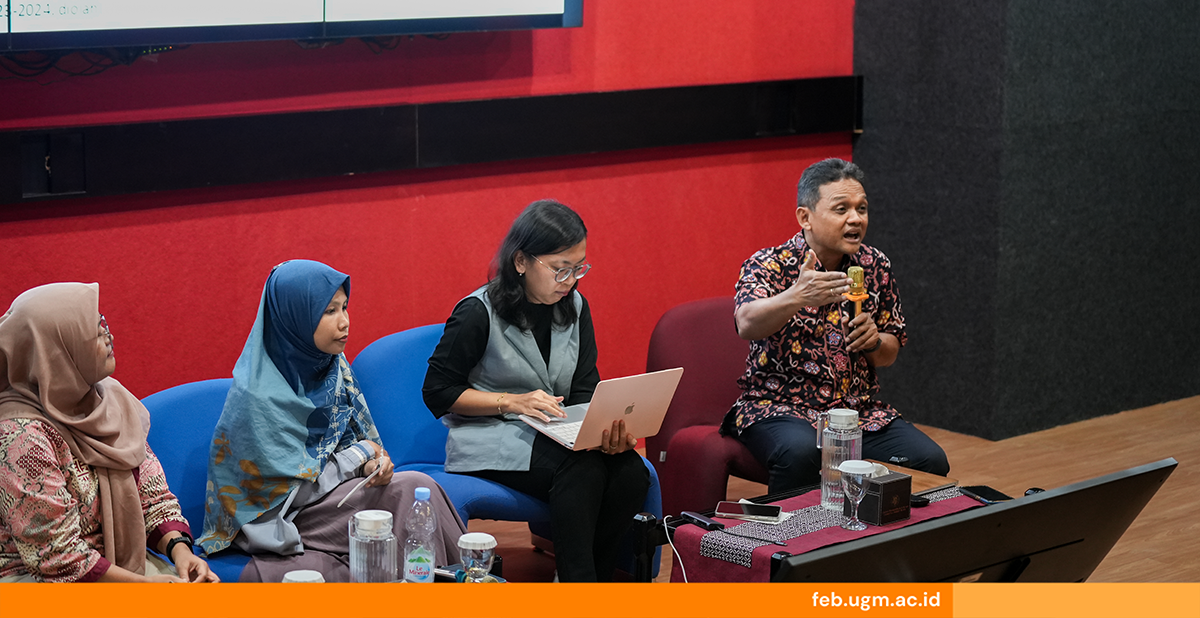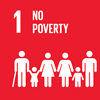
Transparency International Indonesia (TII) recently released the Corruption Perceptions Index (CPI) 2024, which shows an increase in Indonesia’s score from 34 in 2022 and 2023 to 37 in 2024. However, a researcher and corruption expert from the Faculty of Economics and Business, Universitas Gadjah Mada (FEB UGM), Rimawan Pradiptyo, S.E., M.Sc., Ph.D., stressed that this increase should be examined more closely. He pointed out that changes in the assessment indicators used in 2024 make it impossible to compare the CPI proportionally with previous years.
This issue was discussed in the seminar titled “Evaluation of the 2024 Corruption Perceptions Index and Challenges in Combating Corruption in Indonesia”, which was held both offline and online by the MSc in Economics of Crime Program, the Master and Doctoral Program in Economics, the Department of Economics, and the Research and Development in Economic Policy (RDSI) at FEB UGM. The faculty held the event on Thursday, February 13, 2025, at Djarum Auditorium, Pertamina Tower, FEB UGM. Rimawan and three MSc in Economics of Crime students—Tri Juli Astuti, Wida Reza Hardiyanti, and Iqva Anggraini—delved into the findings of the CPI released by TII.
Rimawan explained that researchers must analyze differences in CPI measurement methodologies as key factors. A fundamental change between the 2022-2023 and 2024 results is including a World Economic Forum (WEF) indicator, which increased the total number of variables to nine. Meanwhile, in 2022 and 2023, this indicator was not used, and only eight variables were considered.
According to Rimawan, the latter should have been calculated with the same number of variables to compare the CPI results of 2022 and 2023 proportionally with those of 2024. Using only eight variables, as in previous years, would indicate that corruption perceptions in Indonesia remain stagnant.
“If we consistently use the same eight indicators as in 2022 and 2023, Indonesia’s CPI score in 2024 is not 37, but 34 – meaning there has been no change since 2022 and 2023,” he said.
In light of these stagnant results, Rimawan stressed that Indonesia needs to work harder to improve the quality of its institutions. He pointed out that developed countries have implemented institutional reforms to improve quality.
“Improving institutional quality requires significant sacrifices and resources. However, a country should never dream of becoming prosperous without reform,” Rimawan said.
Meanwhile, Wida Reza Hardiyanti, S.E., added that since 2012, researchers have consistently used seven variables to calculate Indonesia’s CPI. If they had computed the 2012-2024 CPI using these seven variables, Indonesia’s CPI score 2024 would be 35—unchanged from 2022 to 2023.
Tri Juli Astuti, S.E. suggested that future CPI calculations should be grouped by region based on the same number and type of indicators. For example, Laos, which has only 4-5 indicators, should be grouped separately from Indonesia, which has 8-9 indicators, since both are ASEAN members. This inconsistency can lead to misleading interpretations, especially when comparing perceptions of corruption across countries.
“For example, a country like Laos, which has only 4-5 indicators in its CPI, should not be directly compared with Indonesia, which has 8-9 indicators. Such an unequal comparison can lead to inaccurate interpretations in the analysis of corruption perceptions,” she explained.
Report by: Shofi Hawa Anjani
Editor: Kurnia Ekaptiningrum
Watch the full video at https://youtu.be/DvlRl3Zt6Y4
Sustainable Development Goals









